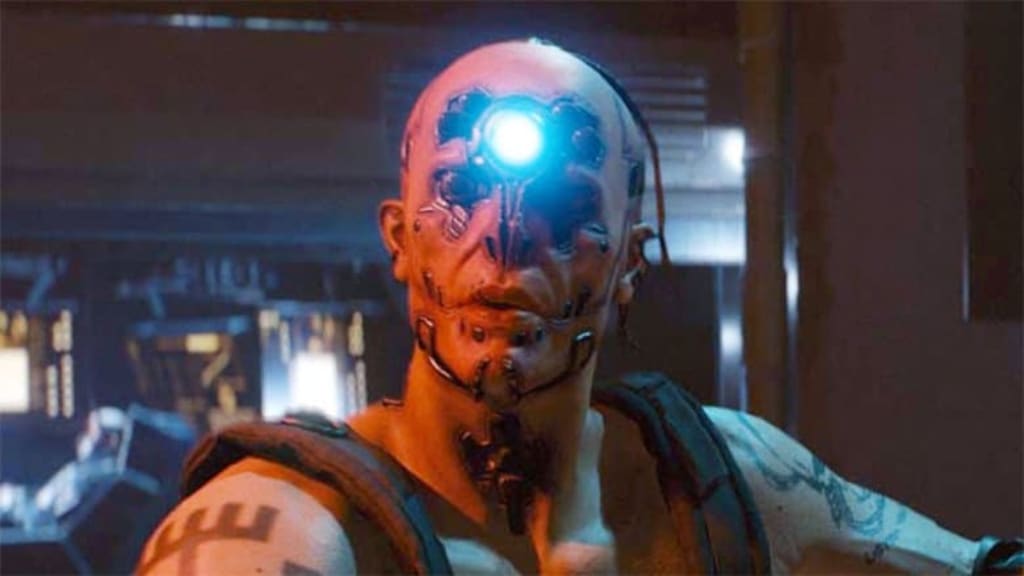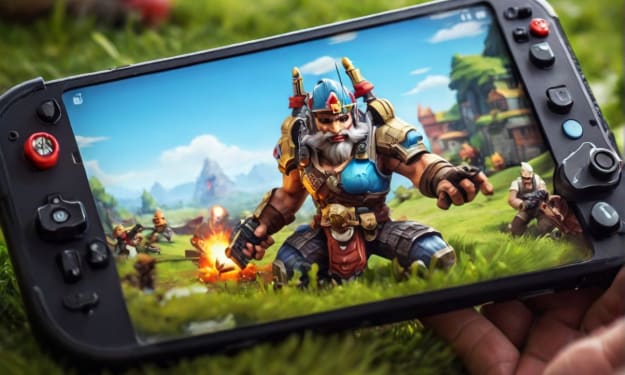Cyberpunk 2077 redefines sci-fi literature
What if sci-fi literature has evolved off the printed page?

Philip K. Dicks changed science fiction with the 1968 novel Do Androids Dream of Electric Sheep. In reality, the novel was ahead of its time, and when he died, Dicks was not a celebrated writer. In 1968 society couldn’t fathom the idea of mechanical humanoids, so closely resembling people that only an empathy test could separate man from machine. It wasn’t until 1982, when Ridley Scott turned Dick’s original story into the movie Bladerunner, that audiences began to conceptualize a future where technology turned our own perception on its head. Some argue that it was Philip K. Dicks that gave birth to the entire cyberpunk genre. Cyberpunk is an infamous subgenre of science fiction, and it tends to focus on a society that is high tech, but low quality of life. Societies often ruled by unscrupulous mega-corporations, where even advanced technology can’t make up for rampant poverty, food shortages and drug addiction. As a genre, cyberpunk got its start during the new wave science fiction movement of the late 60’s and 70’s and while Philip K. Dicks and Ridley Scott earned coveted spots as purveyors, they aren’t formally the creators.
Science fiction literature evolves with the societies, writers, and big thinkers of any given time period. By today’s standards H.G. Well’s story The Time Machine isn’t groundbreaking, however back in the 1930s it was mind bending. The 80’s and 90’s saw the rise of researched and detailed science fiction literature from the likes of Michael Crichton, while the 2000s were dotted with software and augmented reality stories like Ready Player One. Science fiction literature evolves, and what was once unthinkable, suddenly becomes quite possible as society moves forward at a breakneck pace. It’s without doubt that upcoming science fiction will feature plagues and pandemics that rock societies to their core. Now that the world has tasted a global pandemic and witnessed people’s failures of leadership and failures of action, it won’t seem that inconceivable that a pandemic could ravage the world, and an entirely new system of government could replace the democracy we have now.
What if science fiction literature has evolved so much, that it isn’t even literature anymore but fully immersive, interactive, and all-consuming media that both replicates modern life with authenticity, but adds the flair and narrative of a great science fiction book. Literature is defined both as works of great artistic merit, and written works that have a superior lasting quality. Something written decades ago that is still relevant and useful today, full of characters that we can identify with, no matter what generation we hail from. Right here is where CD Projekt Red’s recent video game release Cyberpunk 2077 fits. Bugs, poor performance on older consoles, and a host of technical issues have made Cyberpunk as unpopular as it is beloved. Eight years of hype built Cyberpunk 2077 up to be the ultimate video game, one that would bury players in a world so realistic and functional that it may blur the lines of reality.
Cyberpunk didn’t deliver on that promise, and given that it is marred by bugs, glitches, and an unfinished veneer, criticisms of the game are in fact valid. Nothing could have lived up to Cyberpunk’s hype, regardless of how grand the final product was. However, Cyberpunk delivered on something else, something that I haven’t seen a single game reviewer, sci-fi loyalist, or journalist mention. Cyberpunk is digital, immersive and interactive science fiction literature. It weaves a story that is highly relevant in a pandemic ridden world, where economic uncertainties lie behind every corner. It’s highly relevant in a world where we rely on technology for everything, even the most mundane household chores or basic human interactions. The game is full of memorable characters with well-written story arcs, characters that players can relate too, connect with, and in some cases have romantic feelings for. More importantly, its existence forces us to ask big questions. Is technology making our lives better? Should mega-corporations be given so much power, and often so little oversight? Is deregulation really beneficial for people at the bottom? If climate change isn’t corrected, will our future be marred by barren landscapes and dead oceans? Is synergy between mind and technology, or body and technology really good for humanity? Players will grapple with all these questions, in much the same way readers of great science fiction literature have.
What’s more impressive, if we could take Cyberpunk 2077 back to 1980, 1970, 1960, or 1950 - it’s likely it would have the same relevance there that it does today. The game represents not an evolution of video games, many games have had vast open worlds (Red Dead Redemption 2, Grand Theft Auto, World of Warcraft), but an evolution of science fiction literature. An immersive place where the problems and atmosphere of the future force us to question the problems we face today. Future problems that are often getting their start right under our noses. Elon Musk both supports the idea of combining the human brain with machine artificial intelligence, at the same time he rockets private vehicles into space. Google works tirelessly to crack the code on meaningful AI, a product and software that could render countless blue and white collar jobs irrelevant. More importantly for historical literature purposes, Cyberpunk 2077 reframes the question of androids. While humanoid robots dot the landscape of 2077, it’s oddly void of the androids written about by Philip K. Dicks and countless others. Yet, would a society need androids if software allowed a person to switch off their conscious mind and become a joytoy or doll?
I wouldn’t suggest gamers play Cyberpunk 2077 because it reinvents gaming, I would suggest they play it because it reinvents literature, and establishes with complete and total confidence that videogames are art. While that may not equal the perfect video game, it does equal a massive leap forward for art and expression.
Author Bio:
Jeremy Gosnell is a science fiction writer living in the mountains of Western Maryland. In 2010 his debut novel Neptune’s Garden was released followed in 2015 by his second novel The Terminal. He has written for a variety of publications and is currently working on a third novel, which will explore the future of Mars and humanity’s future synergy with artificial intelligence.






Comments
There are no comments for this story
Be the first to respond and start the conversation.